 Last week I addressed how habits can keep LDS singles back from enjoying the eternal blessings they seek. At the end of the day, results are what matter. And whatever results we have come from the choices we consistently make. Our results come from our habits. Habit is so individualized that no one can detail every habit holding people back. But I can describe some less-effective habits many LDS singles have in common. We talked about some of them on the program last week. In thinking about that program this past week, I recognize one habit many LDS singles have that deserves special attention. Too many of us want perfection to waltz into our lives and set comfortably in our laps. We look at people as they are now, and we act on the assumption that what we see now is what will always be. But the truth is that people will always change over time. The question then is in what direction. Will that change be positive or negative? Direction, not position, determines what results we’ll get in the future. If we truly want to think about the long game of eternity, we should value direction over position. Get to know people  This may seem incredibly simplistic. You might even be thinking to yourself this isn’t a problem you have. But such is the nature of habit that very often what we do and what we think we do don’t match. A common manifestation of this habit appears when we judge others by their external appearance. Just because someone is fat or otherwise physically unattractive doesn't mean that person will always be that way. And yet isn't that what we think when we see people like that? With just a single point on a graph, you can’t tell where the next point on a line will be because the line could be oriented in any direction. But with other points to mark the way, forecasting a future point on a line becomes easier. Likewise, you can't tell from a single conversation or other encounter what direction someone has. You can tell only their position. But after multiple encounters, it's much easier to determine someone's direction. Those multiple encounters are like multiple points on a graph revealing the patterns that evidence what habits someone has. And understanding their habits allows you to forecast more accurately what results they’ll have – and also what results you’ll have if you both intertwine your lives together. To value direction over position means getting to know people well enough to ascertain their direction. Accept the risks  Some don’t want to spend that time. Maybe they accept that people will change, but given someone’s present position they don’t want to deal with the inconvenience that change will bring. In this age of instant everything, we want the results we want to appear now. Spending extra time with people to get to know who they really are doesn't jibe with that culture. But it does mesh well with a Christ-centered culture. Christ was the ultimate example of that love called charity. When we surrender to love and take the time to get to know who people really are, we follow in the path marked by the Master. Why don't we make more effective choices more often? The best answer is the simplest; we have less effective choices encoded in our habits. We've adopted the habit of not surrendering to love, of staying safe within our own comfort zones, and of avoiding the risk of pain or other difficulty in our lives. Yet the only true safety lies in taking risks. You can’t have the greatest happiness without risking having the greatest sadness. You can’t have the greatest comfort without risking having the greatest hassle. Greatness simply cannot come without risk. Put aside the agendas 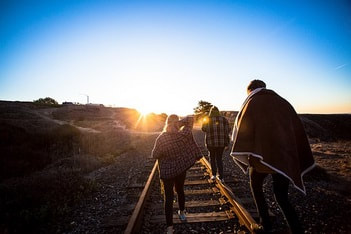 When we put aside our own agendas and get to know people for who they really are, we not only surrender to love but also invite into our lives the love we seek. When we value direction over position, we declare with our actions that we value the fundamental nature of people more than what appears superficially today. When we value position over direction, we send the message that we love people only if they meet certain conditions. But when we value direction over position, we send the message that we love people unconditionally because we don’t insist that people be a certain way today. We recognize we’re all imperfect today and on the same journey towards perfection tomorrow. Value love for others over love for self. Value people over personal agenda. Value direction over position. When you do, you'll find your dating journey more enjoyable. And that will bring you more joy in your journey.
0 Comments
 This has been called the age of the knowledge worker. The great heroes of the age are all intellectual giants. We elevate those with superior intellect to the top of the mountain and then stand at the base looking up in awe and admiration. That's why I know it sounds amazing. How can we be hardwired not to think? Well, for most of what we do, automation just makes sense. Have you ever had to use your brain all day? Remember how your head ached? Why would your brain hurt if it was doing what it’s designed to do? It wouldn’t. Your head aches because it spent too much time operating outside its intended design. Understanding how you’re designed to work can help you live your best life more easily, avoiding the frustration that attends life. It all starts by understanding that you’re hardwired not to think. Life on autopilot  Imagine what life would be like if you had to think about every breath you took in order to breathe. You wouldn't have time for anything else. So yes, automation has its benefits. But automation also has its detriments. Automating means doing that for everything. We’re designed to operate out of a set of instructions. And that set of instructions is habit. Because most of what we do is automated and the instructions for that automation are our habits, we act out of habit for most of what we do. And here’s the kicker: That means we do what we do without really thinking about it. Notice our design is just to follow instructions. There’s no evaluation of the instructions in the operational design. We’re hardwired to follow a set of instructions, not pick and choose which instructions to follow. This scenario sets the stage for much frustration in life. We’ll follow the instructions in habit regardless of the effect those instructions have upon us. Thus, many go through life experiencing failure after failure when they’re simply acting out of less effective instructions encoded in their habits. Those who aren’t self aware enough to realize what’s happening will just keep doing what they do without thinking about it. In many ways, we really are our own worst obstacle. Life by intention  But it doesn't have to be that way. The same process that produces a negative effect can produce a positive one. You just need to replace the less effective instruction with more effective instruction. You need to adopt a better habit. This is more than just quitting a bad habit. When all you do is quit a habit, your brain (hardwired to have a habit) goes looking for one. And the default selection is always the last habit you had. So to get rid of a less effective habit completely, you must replace it with a more effective one. To do that, live life intentionally. Consciously choose what you do. To go where you want to go, you must steer the ship of your life. You must consciously choose your direction. You must live with intention. I know that sounds simplistic, but so many of us don't do that. Again, we’re hardwired not to think. That means our default selection is to follow a habit rather than make conscious choices. Many who just “go with the flow” find their lives unsatisfying. But what they’re really dissatisfied with are their habits. Life with joy  What does all this have to do with LDS singles life? Everything! Many LDS singles dissatisfied with their lives don't realize they’re really dissatisfied with their habits. They keep looking outside themselves for why they're single, when the answer they seek is really inside them. You don't have the results you want when you don’t do what you need to do. Instead of blaming others when your life isn’t what you want, own your life and blame yourself. Take ownership of your choices and the role they played in leading you to the life you have now. Examine your habits and replace less effective instructions with more effective instructions. In short, reformat and reboot yourself. When you own your life and take charge of your choices, you position yourself for success. You can consciously eliminate the less effective habits you follow without thinking — habits that keep you from the success you want — and replace them with more effective habits that will deliver the results you desire. It's not an overnight ordeal, but if you consistently stay at it, you can start seeing changes in your life. You can see yourself moving towards the blessings you desire. When you give your all to that process of continuously trying to incorporate into your life what’s right for you, you'll find happiness. And that will bring you more joy in your journey.
 Last week, I invited LDS singles everywhere who currently feel stuck in their lives to declare their independence from a life of mediocrity. I also described a three-step process to help them get on track to their best life — make a decision to change, commit to that change, and then execute. But it's not enough just to be on the right track. You can start down that road toward your best life, but you won't get very far if you can't change with the changes life will bring you. To correct the set of your sail as the winds blow this way and that, you must develop self-awareness. Self-awareness is a skill and like any other skill can be learned. Also like any other skill, the more you practice it, the better you get. You start to develop that skill when you wake up out of life on autopilot and live your life by conscious choice. Don’t be a zombie  If you think self-awareness isn’t a part of the solution you need to live your best life, think again. You’ll never have your best life (or anything else you might call greatness) by accident. You must intend to have it and act with that intention. That means making conscious choices instead of living on autopilot, which has you making choices out of habit. When you fail to practice the self-awareness skills that can take you outside yourself, you’ll simply be playing out whatever habit you have because that’s how you’re designed to operate. Your brain is hardwired to follow instructions. And the instructions it follows best are the ones encoded in habit, because having a habit is also hardwired into your brain. It doesn’t matter whether the habit is good or bad, helps you or hurts you, or brings you success or failure. Whatever habit you have is the default you’ll turn to when you don’t make a conscious choice. Because you have habits for practically everything you do, and you’re hardwired to follow the instructions encoded in those habits, it’s easy to live life just going through the motions. And indeed, this is how most people live. They walk through life like zombies! But it doesn’t have to be that way. If you feel like a zombie as the years of your life tick on by, then here’s some free advice: Stop being a zombie! Wake up! Step into the light  Many people walking through life like zombies don’t even realize what’s happening. That’s why it’s called life on autopilot. They’re so caught up in their own lives that they don’t see their habits playing automatically in the background. And when their habits keep bringing them the results they’ve always had — results they don’t want — they feel stuck in frustration that seems unending. Only when you step outside yourself can you get a clear view of the way out of that dead end perspective. Developing self-awareness skills allows you to step outside yourself. It’s very much like stepping out of the dark and into the light. Once you understand your habit-based operational design, it’s easier to step outside yourself to evaluate the details of those habits. You can also better see how your habits have brought you your results — the life you’ve known up to now. At this point, if you own your life, it won’t be hard at all to accept the changes you need to make in you to get better results. Find your exercise  Of course, you can find many different approaches to developing self-awareness so you can see more clearly the changes you need to make in you. Many of these approaches rely on seeking answers to questions through reflection and/or writing. Some of my favorite exercises for improving self-awareness involve other people. The whole point of developing self-awareness is so you can step outside yourself to see more clearly. Other people are by definition already outside yourself. Getting feedback from these, especially friends who provide honest yet constructive criticism, can help you make improvements light years ahead of the ones you could make without their help. Meditation is another self-awareness exercise gaining popularity and one that I’ve started recently. The main benefits I’ve seen so far from my practice are lower stress levels during the day and better sleep at night. The best part is that it takes only ten minutes just before bed. In exchange for these disproportionately positive returns, I’ll gladly stay up an extra ten minutes. Whatever approach you decide to take, developing self-awareness skills can help you leave a life on autopilot for an intentional life lived through conscious choices. By acting with more intention from conscious choices, you can more easily live your best life. And that will bring you more joy in your journey.
 For over two centuries, Americans have celebrated freedom on Independence Day. And yet most Americans don’t call the holiday by its name. To them, it’s the Fourth of July. That wording may seem innocent enough, but is it? I sincerely hope many think about their freedom and the price paid to purchase it. But it seems like more and more people have their minds elsewhere. Far too many see the day as a time off from work when they grill their favorite meats and shoot fireworks in their neighborhoods late into the night. In short, they celebrate the freedom to party. There’s more to freedom than that. Many LDS singles live similar lives of dissonance. Mortality is intended to be a time of growth and progress along a more eternal journey. Yet many LDS singles aren’t growing or progressing towards eternal blessings. Like that hamster down at the pet store running endlessly inside its own wheel, many LDS singles are constantly doing, doing, doing, but not really getting anywhere. Does that describe your life right now? Then declare your own independence. It starts when you exercise the power God gave you — the power of agency. Decide enough is enough  Here’s the first step: Decide enough is enough. Yes, it really is that simple. Often we want complicated because that strokes the ego. It’s OK we can’t figure it out if it’s complicated. But not figuring out simple makes us look like idiots. No one wants to look like an idiot. Once you accept it really is that simple and then own your life by accepting responsibility for whatever your life currently is, you can more easily embrace the path that leads to success. And that path begins for you when you decide enough is enough. Are you frustrated with constantly trying to do the right thing but never succeeding at having righteous blessings? Tired of always doing but never making any progress? Disgusted with being stuck in a life far beneath your dreams? Know this: You have the power to change. It all starts when you decide enough is enough. Commit yourself to greatness  Once you’ve decided to change, the next step is to commit yourself to that change. This is where many people falter. Everyone wants a better life, and many have decided to pursue that better life. But most don’t have the commitment to do what is necessary to achieve that better life. Committing means accepting nothing but the one result outlined in your commitment, and that means cutting off all possible avenues of “escape” — every road except the one leading to success. That’s the key to commitment. You must cut from your life everything preventing you from fulfilling your commitment. That’s why most say they want change but don’t commit. They don’t remove from their environment the temptations that dissuade them from success. They don’t remove from their social circles the false friends that accept lives of mediocrity. And they don’t step out of their own way when they feel the enticement of the many fun but futile activities that don’t make anyone’s life any better. The result? They don’t follow through on their decision to change. They don’t get the prize. And that’s why many LDS singles stay single longer than they need to be. Afraid of their own greatness, they commit to the lesser life they have instead of doing whatever is necessary to have the life they could have. That’ll be really hard to hear if you haven’t yet owned your life. But all who have owned their life readily see the truth of it. Execute with passion  Whatever you commit to do, you need to be all in. You need to give everything you have to following through on your decision and keeping your commitment. Whatever it takes, that’s what you do. What books do you need to read? What knowledge or skills do you need to acquire? What mentors do you need? What support systems will help you keep your commitment? Whatever it is, go after it. Within the bounds of righteousness, do what you need to do to get the knowledge and skills you need. Then with knowledge and skills in place, execute with passion. Give your all. Only when you give your all to the right things for you will you find true happiness in your life. You need not be imprisoned by fear, ignorance, or mediocrity. You can free yourself from a life lacking progress. You can declare your independence. When you decide enough is enough, commit yourself to greatness, and then execute with passion, you’ll see life unfolding for you in ways you never imagined. And that will bring you more joy in your journey.
|
Author
Howdy! I'm Lance, host of Joy in the Journey Radio. I've been blogging about LDS singles life since 2012, and since 2018 I've been producing a weekly Internet radio show and podcast to help LDS singles have more joy in their journey and bring all Latter-day Saints together. Let's engage a conversation that will increase the faith of LDS singles and bring singles and marrieds together in a true unity of the faith.
Comment
Joy in the Journey Radio encourages the free discussion of ideas but reserves the right to remove and/or block comments which do not conform to LDS standards.
Donate
Joy in the Journey Radio offers many free resources to help LDS singles everywhere, but it certainly isn't free! Help Joy in the Journey Radio in its mission to improve the lives of LDS singles by donating today.
Posts by Month
December 2022
Categories
All
|
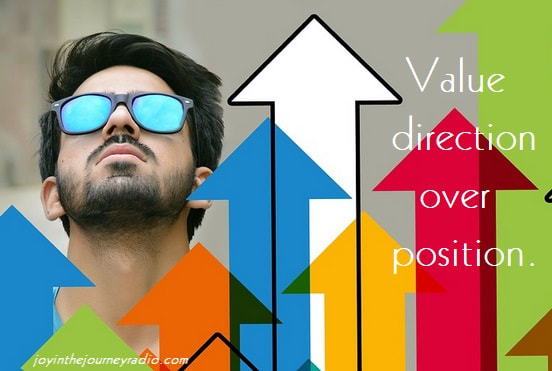
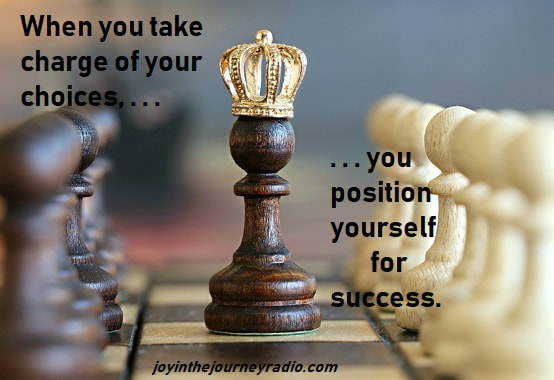
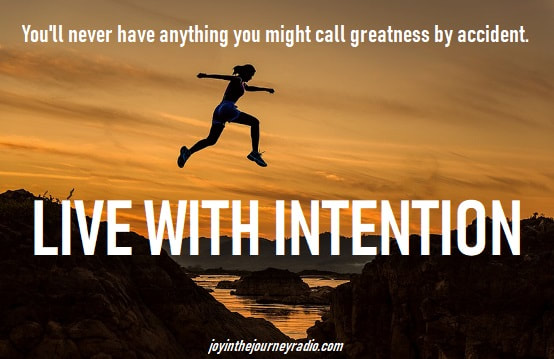
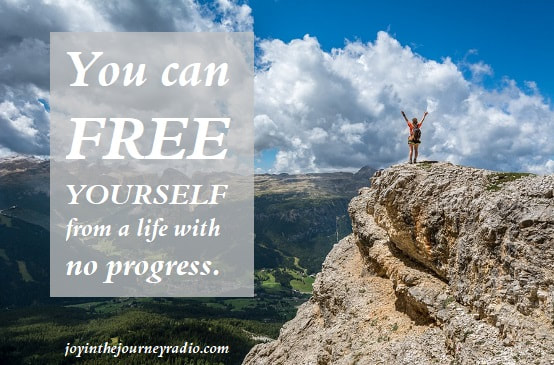
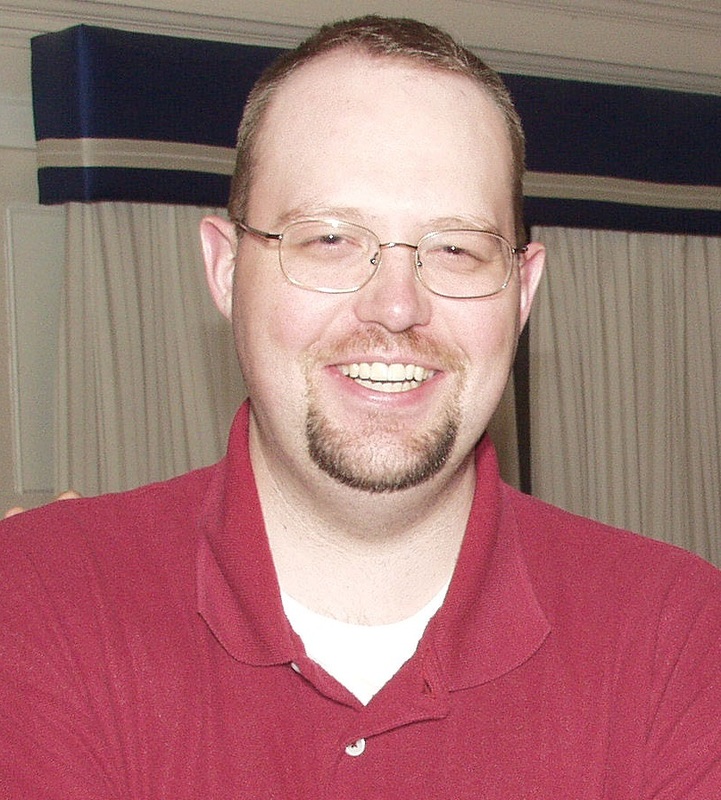
 RSS Feed
RSS Feed